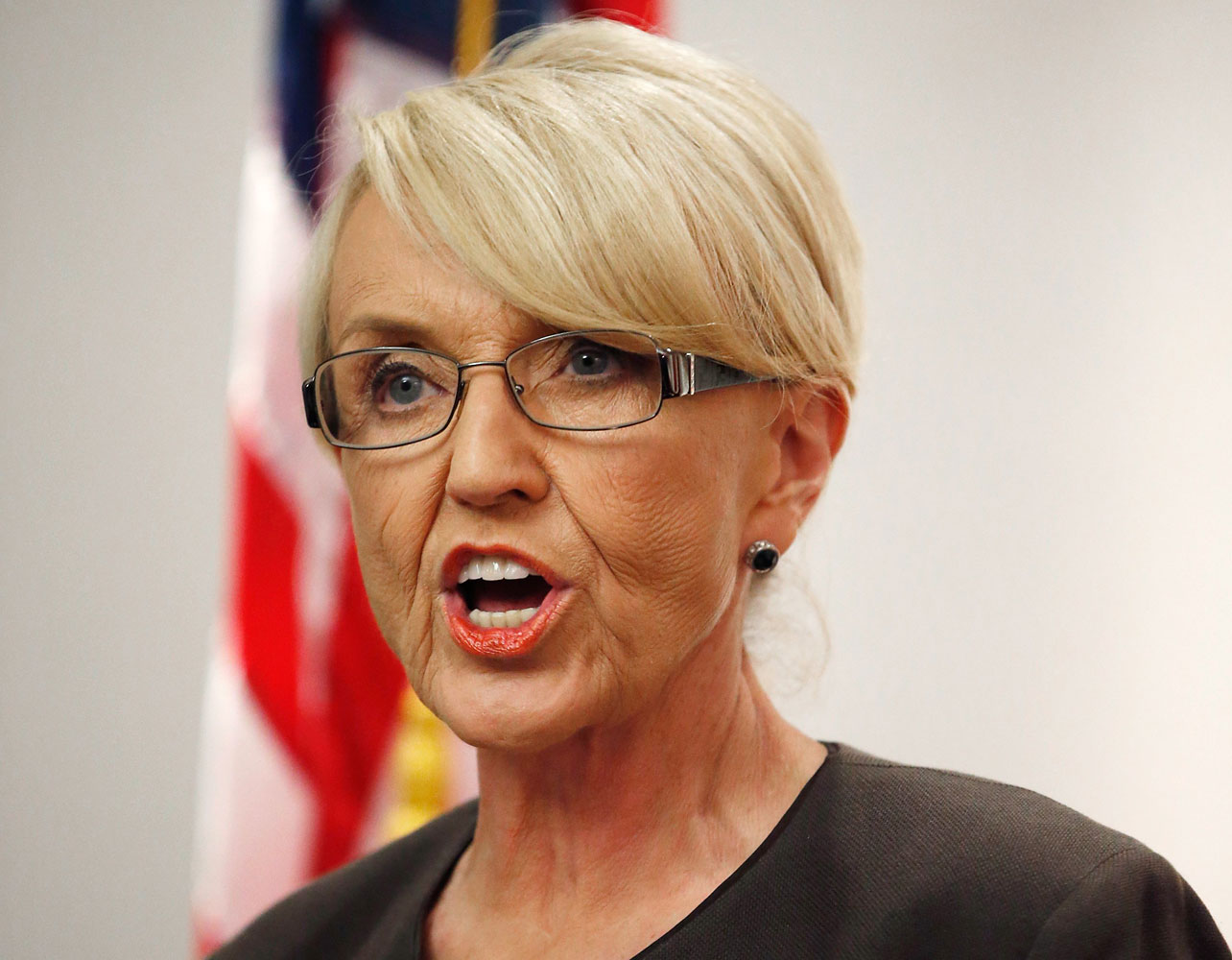
Recently the state legislatures of Arizona and Kansas, seeking largely to protect the rights of religious objectors to gay marriage, have considered expansions of their states’ definitions of religious liberty. Both bills failed. The Kansas bill passed the House but not the Senate, and the Arizona bill was vetoed by Governor Jan Brewer. But as other states – reportedly including Georgia, Idaho, Mississippi, Missouri, and Tennessee – now consider similar legislation, it’s important to examine the core principles at stake.
In recent years something interesting has been happening in the U.S.: As gay unions have been recognized, so have the rights of religious objectors.
For example, when New York’s legislature recognized gay marriage in 2011, the law also insulated religious organizations that object to gay marriage (or any marriage) from both private lawsuits and government penalties. In Maine, a successful ballot initiative in 2012 permits gay marriage, but also permits organizations to refuse to host weddings to which they object on religious grounds, without facing a threat to their tax-exempt status. Similar protections for religious and religiously-affiliated organizations have accompanied legislative victories for gay marriage in other states.
Were any of these results perfect, from the perspective of either marriage equality advocates or advocates for religious freedom? Of course not. Did they achieve real gains for both sides? Yes.
This recent American dynamic of expanded gay rights in tandem with stronger guarantees of religious liberty offers important lessons. First, it reminds us that no right is absolute. Even a fundamental right exists only in relation to, and often in tension with, other important rights.
Second, it shows us that in politics, as in much of life, the best outcomes tend to be the results of negotiated compromise, in which each sides gives as well as gets. Declarations can be a good starting point, but ultimately there must be a conversation.
Third, it shows us that, even in this hyper-partisan era, very diverse groups of Americans can actually find creative ways to live together.
The bills recently debated in Kansas and Arizona and being considered in other states represent a sharp departure from this path. For example, in 25 states, Kansas and Arizona among them, there is both a constitutional ban on gay marriage and no underlying state law protecting citizens from discrimination on the basis of sexual orientation in areas such as housing and employment. Neither Kansas nor Arizona permits same-sex civil unions or domestic partnerships.
So what, exactly, in the area of gay rights and gay unions, were religiously motivated Kansans and Arizonans being protected from? When there’s only one legally recognized set of rights, there’s little to negotiate and almost nothing of substance with which to compromise. It’s difficult to engage the “other” when, in effect, you are talking only to yourself and only about your needs.
The Kansas bill was quite extreme. Its terms would protect all religious objections not only to gay marriage, but also to gay civil unions, gay domestic partnerships, and “similar” arrangements. And for good measure, it specifies that religious objections to gay unions always win, regardless of the cost to same-sex couples.
Arizona’s bill was different. It was an expansion (some proponents would say clarification) of the state’s existing law protecting religious freedom. In Arizona, as in 17 other states, that protection is based on the federal Religious Freedom Restoration Act, which provides important protections for religious believers in cases of state over-reach – for example, when a city seeks to require the removal of crosses and statues of saints from cemeteries.
At the same time, the Arizona bill was often described by friend and foe alike as a way to counteract the same-sex marriage movement – in a state that, like Kansas, already denies any legal recognition of gay unions. More importantly, like the Kansas bill, the Arizona bill would seemingly have expanded the scope of protection from religious organizations to every individual and private business in the state – a shift so broad and open-ended that it clearly raises troubling questions regarding basic fair treatment. Would the new law increase protection for a restaurant owner with a religious objection to serving gay couples?
It didn’t have to be this way, and it need not be this way in the future. The important American value of religious freedom doesn’t have to become just another pawn in a no-compromise, winner-take-all culture war.
Legislators in Kansas, Arizona and 23 other states who are properly determined to protect religious freedom can begin by asking themselves: Does any religious conviction justify denying lesbians and gays a basic legal promise of non-discrimination in hiring, public accommodations, and housing? Surely the answer to this question is no. Correcting that inequity would begin the process of recognizing that both sides – gay couples and religious objectors – have rights and that reasonable accommodation is possible only when both sides have something to gain.
Leah Ward Sears is a partner at the law firm of Schiff Hardin LLP in Atlanta and was a former Chief Justice of the Georgia Supreme Court. David Blankenhorn is president of the New York-based Institute for American Values.
More Must-Reads from TIME
- Cybersecurity Experts Are Sounding the Alarm on DOGE
- Meet the 2025 Women of the Year
- The Harsh Truth About Disability Inclusion
- Why Do More Young Adults Have Cancer?
- Colman Domingo Leads With Radical Love
- How to Get Better at Doing Things Alone
- Michelle Zauner Stares Down the Darkness
Contact us at letters@time.com